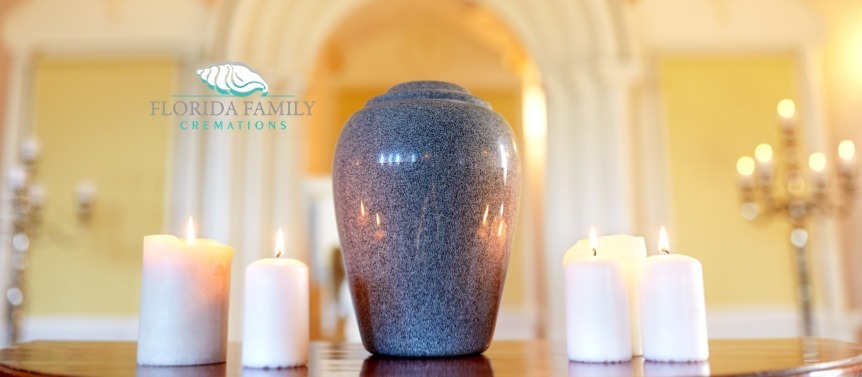If you’re seeking cremation services for when you pass on or are currently handling a loved one’s final disposition, you must have lots of questions about the entire cremation process.
These include how long does cremation take? How is the cremation process done? Who provides cremations services? Not to worry, keep reading to find out everything you need to know about cremation.
How Cremation Works
Typically, the cremation process follows the following stages:
Identification
Identification laws vary for each state. However, the process usually involves a family member confirming the identity of the deceased. Once identified, the body gets a tag that will remain on for the entire cremation process.
Cremation authorization
Florida cremation law requires you to first register the body, file for a death certificate, plus get it certified to proceed with cremation. When seeking authorization, you should consider ordering death certificate copies as they’ll help settle the deceased real estate and administrative matters.
Body preparation
Each cremation facility handles body preparation differently. However, the standard steps include washing and swathing. The family members will then decide whether to embalm the body before visitation.
Actual cremation
A dead body is cremated in a cremation chamber at high temperatures starting from 1400 to 1800 degrees Fahrenheit, which reduces the corpse to bone fragments. The cremator then takes these cremated remains out to cool. Afterward, the technician will sort out the cremains to get rid of any metal such as jewelry or casket components. Finally, the cremator will use a cremulator to turn the bone fragments into ashes.
Returning the ashes
Once the cremation process is complete, the crematorium returns the ashes in an urn, or if you haven’t purchased one, you’ll collect the ashes in a plastic bag.
So, How Long Does Cremation Take?
While the cremation process takes close to three hours, it may take up to two weeks for you to receive your loved one’s ashes. Typically, the average time frame to receive your loved one’s cremains is ten days. You might be wondering why it takes this long, yet cremation gets done in just a few hours. Here’s why.
- Cremation authorization takes up to five days. The registration and filing of the death certificate may take three days. Afterward, the coroner may take about two days to certify the document to begin the cremation process.
- The cremation process takes anywhere between two to three hours. However, this may take longer depending on the body weight and fat, cremation equipment, container, plus the cremation chamber temperature.
- Cooling the bone fragments right before pulverization takes about two hours.
- Pulverization of the cremains to ashes, then transferring them in a secure box.
- Holiday season and weekends. If you didn’t know, holidays and weekends significantly affect cremation timings. Most crematoriums close for the weekend.
- Therefore if you lose your loved one during the holiday season, chances are most staff are on holiday, making the cremation process take more time than usual. The same applies to weekends since many cremation facilities don’t open during this time.
Other than the factors mentioned above, another reason for the lengthy cremation process today would be the upsurge in cremation requests and backlog owing to influx of deaths resulting from the pandemic.
Cremation FAQs
How does one know that they’ve received the correct cremated remains?
As mentioned earlier, the medical examiner will put a tag on the corpse during identification. That’s not all. The cremator will use this tag and the cremation authorization documents to ensure clients receive their loved one’s ashes.
Does the body undergo cremation with clothing?
Yes. Family members choose which outfit they would want their loved ones to wear. Otherwise, the cremator will cover the corpse with a hospital gown before cremation.
What about jewelry?
Again, this will be up to the family members. If you wish to leave jewelry on your loved one, that’s fine. With cremation, most of the jewelry will disintegrate due to the extreme heat.
What happens to the casket during cremation?
Besides clothing, your loved one will stay in a casket before cremation. Usually, a wooden or cardboard coffin is ideal since metal wouldn’t combust well during cremation.
Does the crematorium cremate several decedents at once?
No, a crematorium may cremate several bodies in one room simultaneously but not in the same cremation chamber.
Can family members observe the cremation process?
Yes. However, this depends on whether the crematorium can accommodate cremation observation. Modern cremation facilities are more likely to have a viewing area where loved ones can watch the entire cremation process.
Who receives the ashes?
Only those who’ve signed the cremation authorization can collect the ashes. Typically, it’s the parent or the partner. However, if the deceased is a parent, all children must sign to allow for the cremation process.
Are You Looking for Cremation Services in Clearwater?
You now know how long cremation takes, the documentation required, and what to expect during the entire process. If you’re considering cremation after your passing, we recommend cremation pre-planning. Doing so will ensure your family knows about your wishes and will also reduce the burden of planning the funeral while grieving. To learn more about pre-planning and other cremation services, call Florida Family Cremations today at (727) 223-5911.

